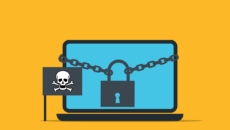
eDiscovery, which means “electronic discovery”, is a process in which information and data is taken out of electronic sources and shared. Businesses and individuals all over the world store information on a range of different electronic devices and mediums, such as smartphones, computers, and the cloud, for various reasons. Sometimes, however, a court of law will require access to this information, particularly true pre-trials and trials of businesses and organizations. There are now numerous eDiscovery laws in place, something that legal expert Matthew F Knouff has focused on. As a result, he has created a step approach for all businesses to follow, so that they are compliant with those rules.
A Step Approach to eDiscovery Compliance
- All data that relates to business transactions must be stored properly and must be backed up regularly to prevent loss of data. This is particularly important in cases where there is an accusation of breach of contract. The location of the backup files should only be known to a select few individuals within the organization. If any hard copies still exist, they should be digitized and stored and be backed up properly.
- All data should be indexed in an easy to understand manner, so that none ends up misplaced. If an eDiscovery request is submitted, all information required has to be found. Not only is this the law, missing out crucial pieces of information could mean vital evidence in support of the organization’s position is missed.
- A copy of the eDiscovery request and a copy of all information provided should be stored securely. This will prevent sabotage and other forms of malpractice from individuals, lawyers, investigators, and others. This copy should not be a simple backup, it should be a completely separate file.
- Data and storage systems should be updated and scanned regularly to avoid corruption.
eDiscovery laws are becoming more ingrained into society and more common during legal proceedings. It is vital that all businesses and individuals comply with the relevant rules and regulations, also for their own protection. Furthermore, once everybody starts to become compliant, and proper storage is implemented across the board, eDiscovery will become a lot easier, leading to quicker resolutions of legal cases.
A final issue of consideration is the cloud. It is now increasingly common for people and businesses to use the cloud for their storage. While this is a good provision, people like Matt Knouff warn that it is not perfect. Rather, proper archiving solutions should be put in place, and those will, ideally, store on the cloud. This is mainly due to indexing. If people use the cloud in the same way as they use a hard drive, it continues to be very complex to find relevant information. Through proper archiving solutions, however, each item will be stored in accordance with pre-determined tags and keywords, thereby ensuring all relevant information can be retrieved with ease. It is believed that having proper archiving solutions in place will soon become a legal requirement, in fact.




